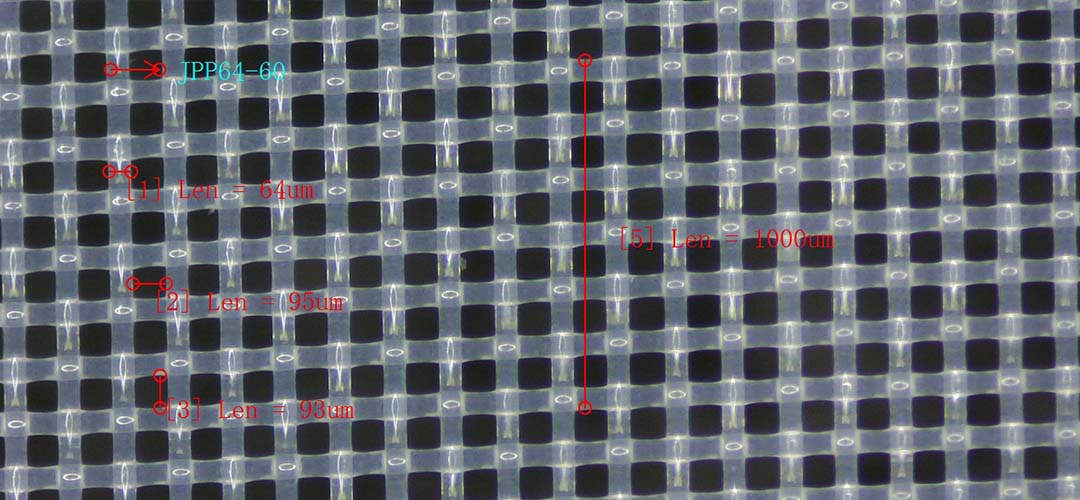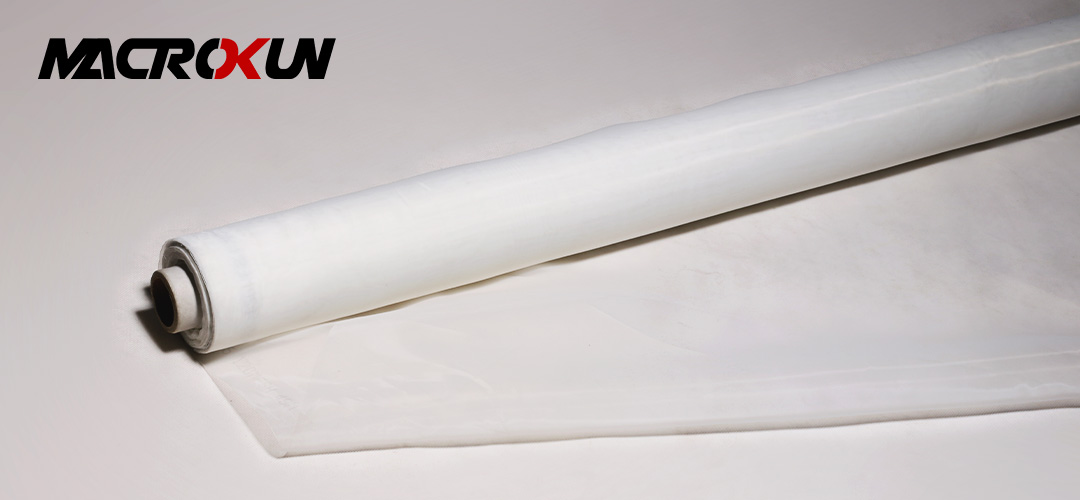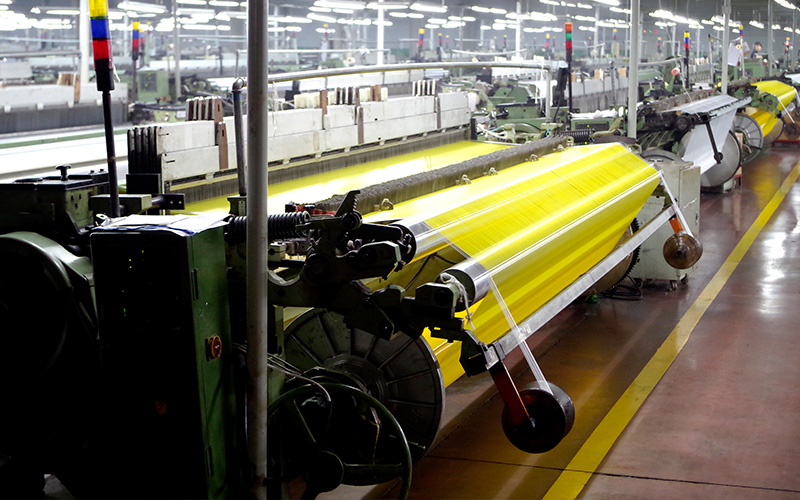Table of Contents
Production Process of nylon filter mesh
Nylon filter mesh is a crucial component in various industries, including food and beverage, pharmaceuticals, and water treatment. The production process of nylon filter mesh requires precision and excellence to ensure the highest quality product. In this article, we will take a closer look inside a nylon filter mesh factory to uncover the intricate production process.

The production of nylon filter mesh begins with the selection of high-quality nylon yarns. These yarns are carefully chosen for their strength, durability, and resistance to chemicals. The yarns are then spun into threads and woven into a mesh using advanced weaving machines. The weaving process is crucial as it determines the size, shape, and strength of the mesh.
Once the nylon filter mesh is woven, it undergoes a series of treatments to enhance its performance. The mesh is coated with a special solution to improve its resistance to chemicals and abrasion. It is then heat-set to ensure dimensional stability and prevent shrinkage. These treatments are essential to ensure the longevity and effectiveness of the nylon filter mesh.
After the mesh has been treated, it is inspected for quality control. Each roll of mesh is carefully examined for defects, such as broken threads or irregularities in the weave. Any imperfections are promptly addressed to maintain the high standards of the factory.
The next step in the production process is cutting the nylon filter mesh to the desired size. Precision cutting machines are used to ensure accuracy and consistency in the dimensions of the mesh. This step is crucial as it determines the final product’s fit and performance in various filtration applications.
Once the nylon filter mesh has been cut, it is ready for packaging. The mesh is carefully rolled and packaged in protective materials to prevent damage during transportation and storage. Each roll is labeled with important information, such as the mesh size, type, and production date, to facilitate easy identification and tracking.
Throughout the production process, strict quality control measures are in place to ensure that every piece of nylon filter mesh meets the factory’s high standards. Regular inspections and testing are conducted to verify the mesh’s performance, durability, and chemical resistance. Any deviations from the quality criteria are promptly addressed to maintain the factory’s reputation for excellence.
In conclusion, the production process of nylon filter mesh is a complex and intricate operation that requires precision and excellence at every step. From selecting high-quality nylon yarns to weaving, treating, cutting, and packaging the mesh, every aspect of the process is carefully controlled to ensure the highest quality product. Inside a nylon filter mesh factory, precision and excellence are unveiled in the meticulous attention to detail and commitment to quality.
Quality Control Measures in a Nylon Filter Mesh Factory
In a nylon filter mesh factory, quality control measures are paramount to ensuring that the final products meet the stringent standards required by various industries. The process begins with the selection of raw materials, where high-grade nylon is sourced to guarantee durability and performance. This initial step is critical, as the quality of the raw material directly influences the integrity of the finished mesh. Once the nylon is procured, it undergoes rigorous testing to assess its tensile strength, elasticity, and resistance to environmental factors. These tests are essential in establishing a baseline for the material’s performance, ensuring that only the best is used in production.
As the manufacturing process commences, quality control continues to play a vital role. Each stage of production is monitored closely, with operators trained to identify any deviations from established specifications. This proactive approach helps to mitigate potential issues before they escalate, thereby maintaining the integrity of the manufacturing process. For instance, during the weaving phase, the mesh is subjected to real-time inspections where operators check for uniformity in weave density and pattern consistency. Any irregularities are promptly addressed, ensuring that the final product adheres to the required standards.

Moreover, the factory employs advanced technology to enhance its quality control measures. Automated systems equipped with sensors and cameras are integrated into the production line, allowing for continuous monitoring of the mesh as it is being produced. These systems can detect flaws that may not be visible to the naked eye, such as micro-tears or inconsistencies in thickness. By leveraging technology, the factory not only increases efficiency but also significantly reduces the likelihood of defects reaching the final inspection stage.
Once the nylon filter mesh has been produced, it undergoes a comprehensive quality assurance process. This involves a series of tests designed to evaluate the mesh’s performance under various conditions. For example, samples may be subjected to filtration tests to assess their ability to retain particles of different sizes. Additionally, the mesh is tested for chemical resistance, ensuring that it can withstand exposure to various substances without degrading. These tests are crucial, as they provide empirical data that confirms the mesh’s suitability for its intended applications.
Furthermore, the factory adheres to international quality standards, such as ISO certifications, which serve as benchmarks for quality management systems. Regular audits and assessments are conducted to ensure compliance with these standards, fostering a culture of continuous improvement. This commitment to excellence not only enhances the factory’s reputation but also instills confidence in customers who rely on the quality of the products for their operations.
In conclusion, quality control measures in a nylon filter mesh factory are integral to the production process, encompassing everything from raw material selection to final product testing. By implementing rigorous testing protocols, utilizing advanced technology, and adhering to international standards, the factory ensures that its products meet the highest levels of quality and reliability. This unwavering dedication to precision and excellence not only satisfies customer demands but also positions the factory as a leader in the industry, capable of delivering superior nylon filter mesh solutions that meet the diverse needs of its clientele.
Innovation and Technology Advancements in Nylon Filter Mesh Manufacturing
Nylon filter mesh is a crucial component in various industries, including food and beverage, pharmaceuticals, and water treatment. The precision and excellence required in manufacturing these filter meshes are paramount to ensure the quality and efficiency of the final product. In this article, we will take a closer look inside a nylon filter mesh factory to understand the innovative technologies and advancements that drive the production process.

As we step inside the factory, we are greeted by a symphony of machines humming in perfect harmony. The first thing that catches our eye is the state-of-the-art extrusion line, where nylon pellets are melted and forced through a die to form the intricate mesh pattern. This process requires a high level of precision to ensure uniformity in the mesh size and shape. The use of advanced computer-controlled systems allows for real-time monitoring and adjustments to maintain the desired specifications.
Moving along the production line, we come across the weaving machines that transform the extruded nylon filaments into a tightly woven mesh. These machines operate at high speeds, with each thread interlacing seamlessly to create a strong and durable filter mesh. The use of automated tension control systems ensures that the mesh is woven with consistent tightness, eliminating any irregularities that could compromise its effectiveness.
One of the key innovations in nylon filter mesh manufacturing is the introduction of laser cutting technology. This cutting-edge technology allows for precise and clean cutting of the mesh to the required dimensions. The use of lasers eliminates the need for manual cutting, reducing the risk of human error and ensuring a high level of accuracy. This level of precision is essential in producing filter meshes that meet the stringent quality standards of various industries.
Another technological advancement in nylon filter mesh manufacturing is the incorporation of antimicrobial additives during the extrusion process. These additives help inhibit the growth of bacteria and other microorganisms on the filter mesh, ensuring a hygienic and safe filtration process. This innovation has been particularly beneficial in industries such as food and beverage, where maintaining product purity is of utmost importance.
As we near the end of the production line, we witness the final quality control checks being conducted on the filter meshes. Each mesh undergoes rigorous testing to ensure that it meets the specified filtration efficiency and durability standards. Advanced imaging systems are used to inspect the mesh for any defects or irregularities, allowing for immediate corrective actions to be taken.
In conclusion, the manufacturing of nylon filter meshes requires a combination of precision, excellence, and innovative technologies. The advancements in extrusion, weaving, cutting, and quality control processes have revolutionized the production of filter meshes, making them more efficient and reliable than ever before. As we leave the factory, we are left with a newfound appreciation for the intricate processes and technologies that go into creating these essential components for various industries.






